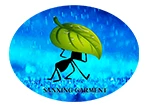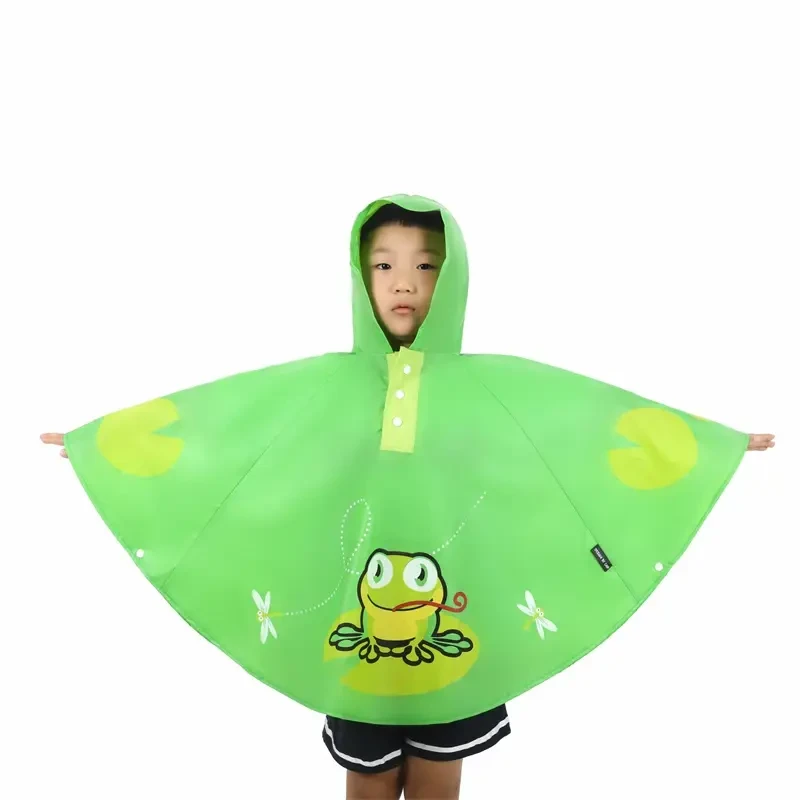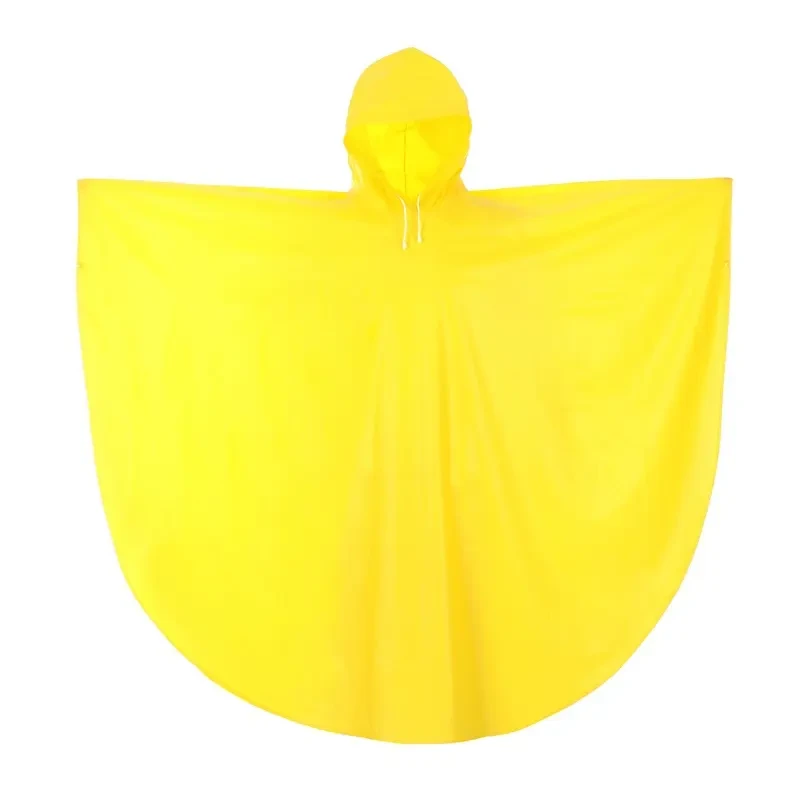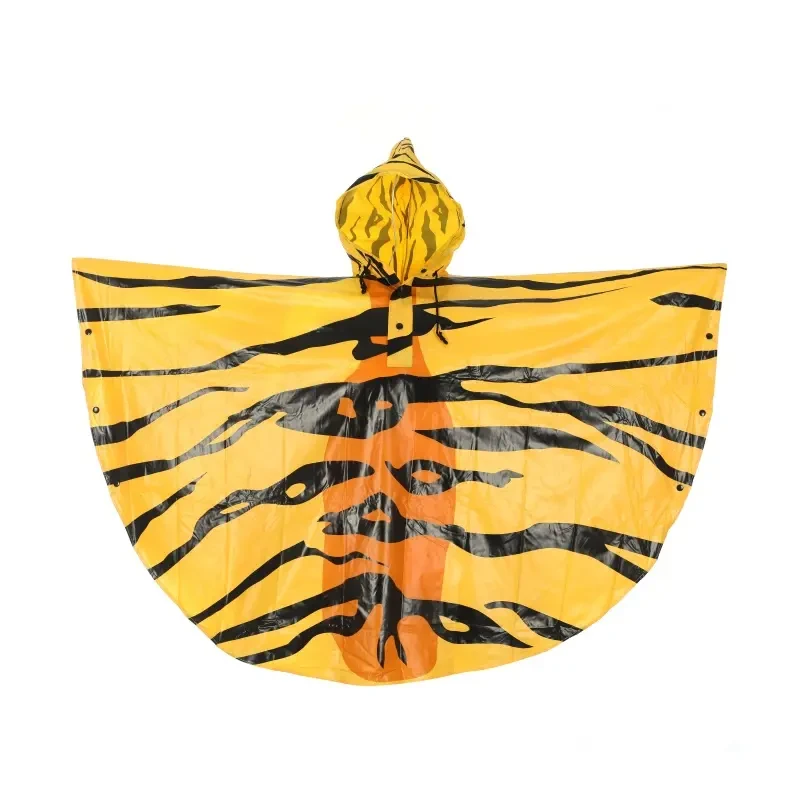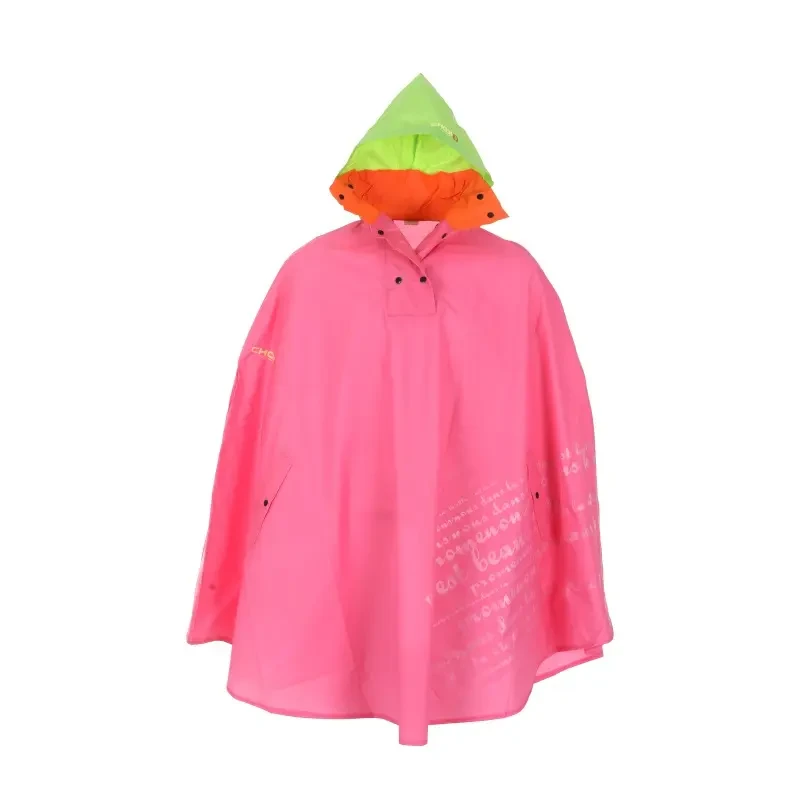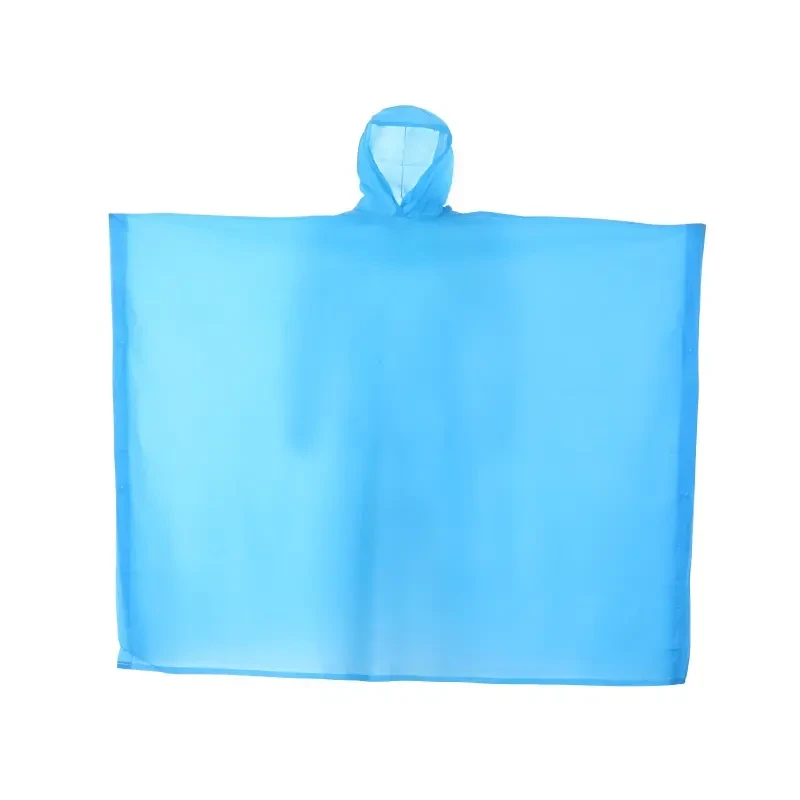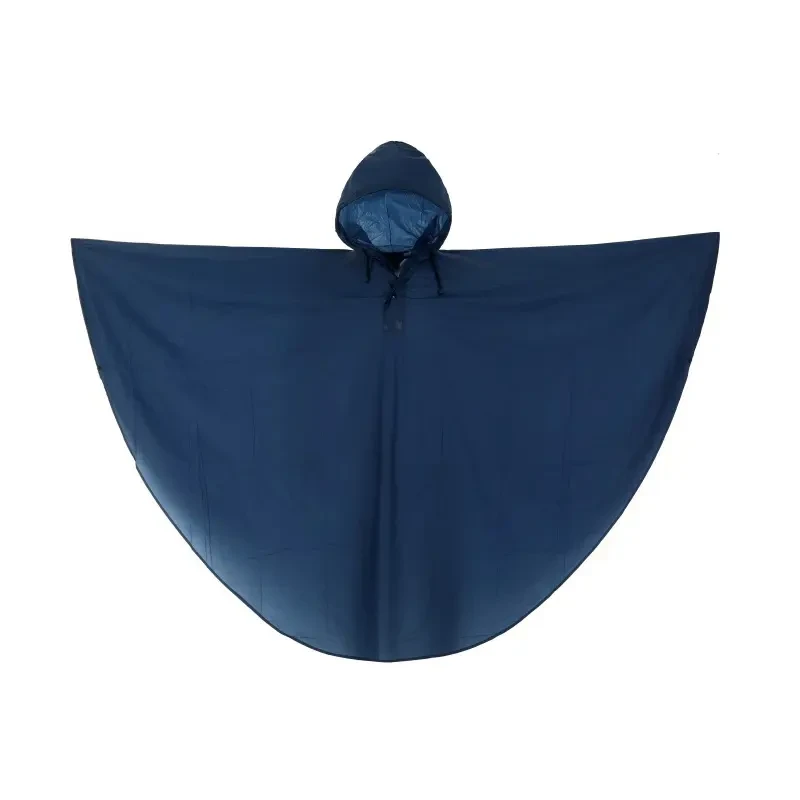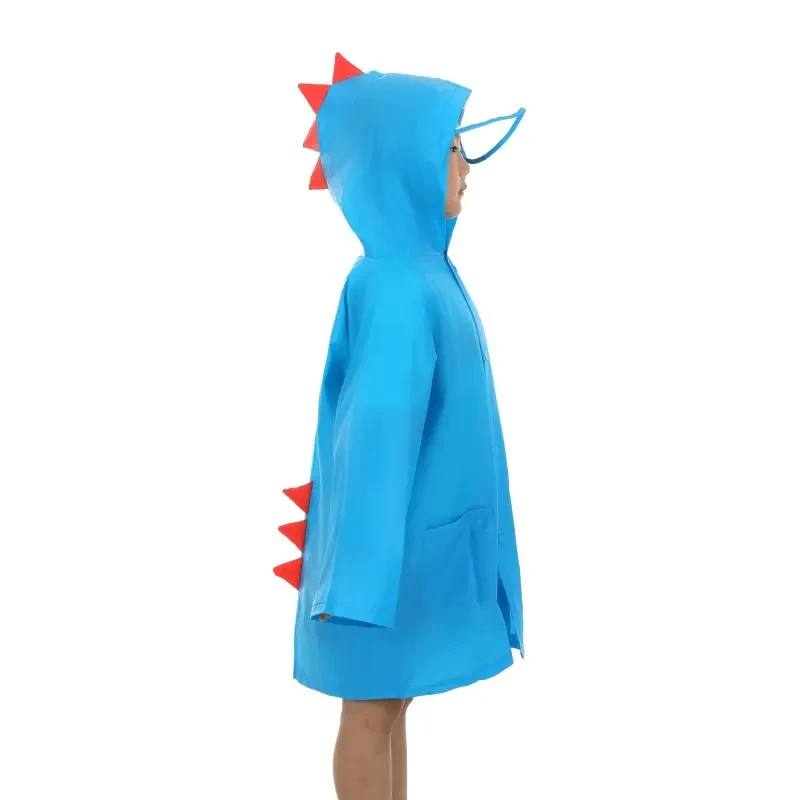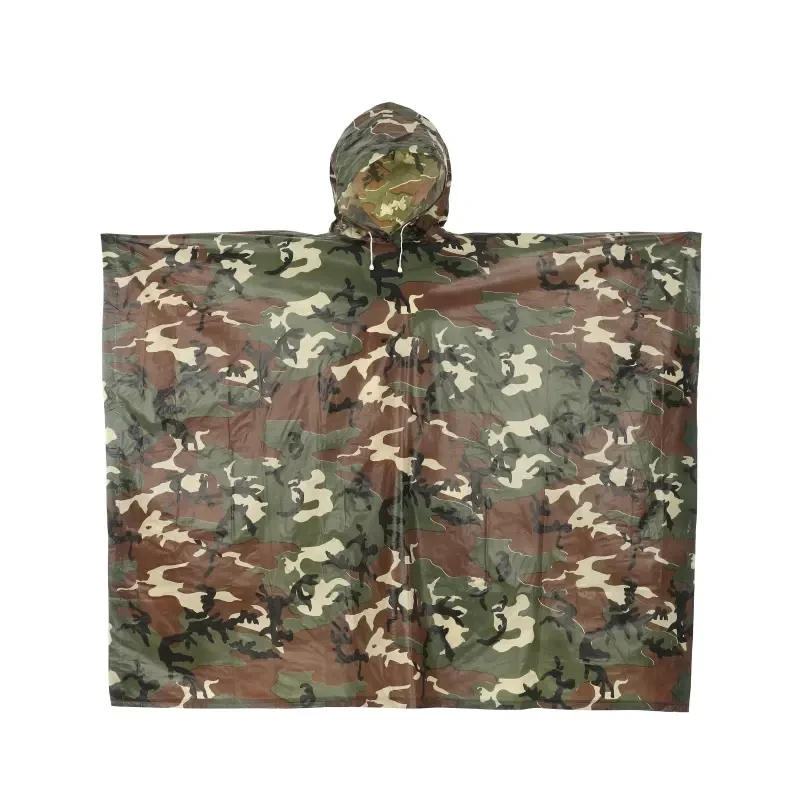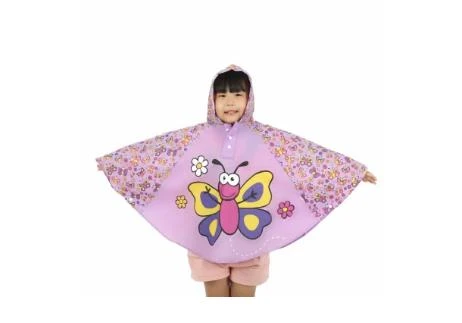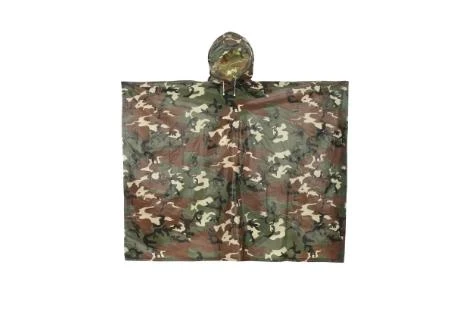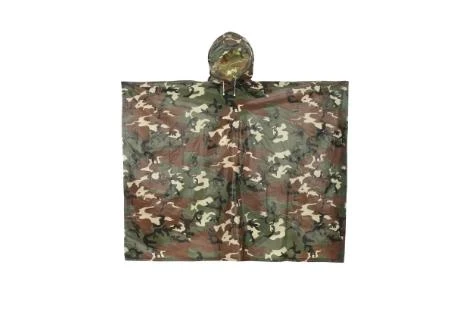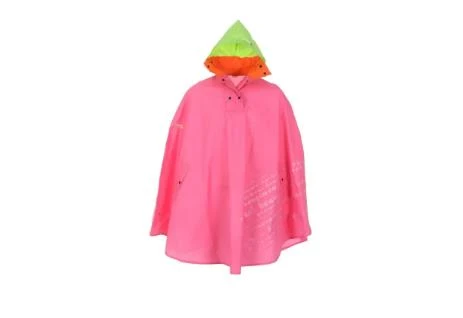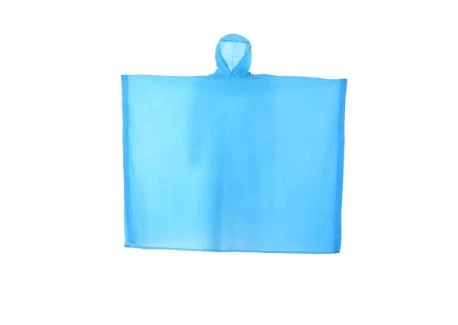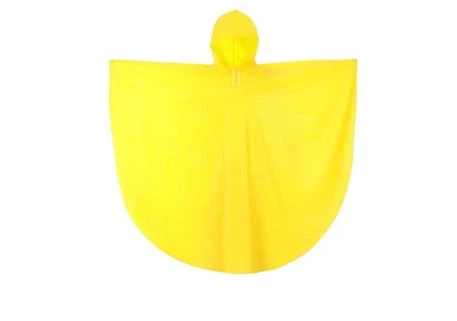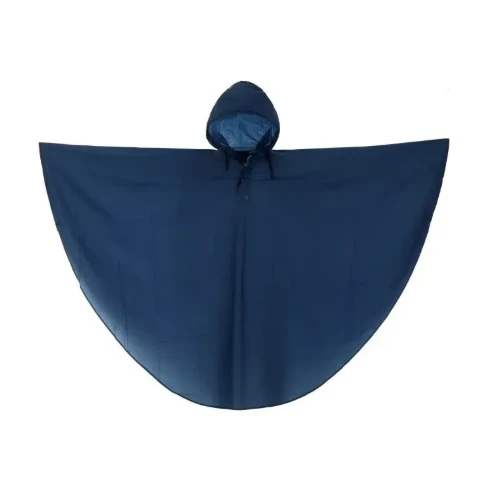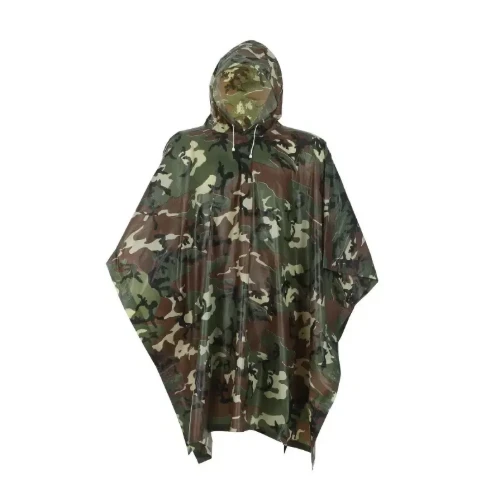Awst . 15, 2025 05:40
The Evolution of Rainwear: Understanding EVA Material & Market Dynamics
In the modern landscape of protective apparel, the demand for sustainable, lightweight, and highly effective materials has led to significant advancements. Among these innovations, Ethylene-Vinyl Acetate (EVA) has emerged as a superior choice for rainwear, setting new benchmarks in comfort, durability, and environmental responsibility. Unlike traditional PVC or rubberized fabrics, EVA raincoat technology offers a unique blend of flexibility, tear resistance, and non-toxicity, making it ideal for a diverse range of applications, from daily commuting to industrial environments requiring reliable moisture protection. Current industry trends emphasize eco-friendly production processes and extended product lifecycles, areas where EVA material truly excels. This commitment to both performance and ecological impact positions EVA rainwear at the forefront of the market, addressing the evolving needs of discerning consumers and B2B clients alike.
The market for EVA raincoats is experiencing robust growth, driven by increasing awareness of environmental issues and a preference for healthier, non-toxic alternatives. Manufacturers are continuously innovating, focusing on enhanced breathability, ergonomic designs, and customizable features that cater to specific sector requirements. This includes advancements in the production of EVA lightweight raincoat options, which provide superior mobility without compromising on water resistance. The adaptability of EVA allows for various finishes and textures, expanding its aesthetic appeal while maintaining its core protective qualities. This section delves into the fundamental properties of EVA material and its strategic market positioning, highlighting why it's becoming the material of choice for next-generation rain protection.
Technical Deep Dive: The Superior Properties of EVA Rainwear
Ethylene-Vinyl Acetate (EVA) is a copolymer of ethylene and vinyl acetate, renowned for its exceptional flexibility and elasticity. Its unique molecular structure imparts properties critical for high-performance rainwear, including excellent impact resistance, stress-crack resistance, and robust waterproofing capabilities. Unlike conventional materials, EVA offers superior thermal insulation, remains flexible at low temperatures, and is resistant to UV radiation, ensuring prolonged durability and performance in varying climatic conditions. The closed-cell foam structure of EVA films also contributes to its inherent buoyancy and light weight, making EVA rainwear exceptionally comfortable for extended wear. This comprehensive understanding of EVA's technical attributes is vital for B2B buyers seeking reliable and high-performing protective apparel solutions.

To further illustrate the robust characteristics of EVA, the following table provides a breakdown of typical technical parameters for a high-quality EVA material raincoat, demonstrating its competitive edge against alternative materials. These specifications are crucial for procurement managers and engineers evaluating material suitability for specific industrial or consumer applications, ensuring the product meets rigorous performance standards.
Typical EVA Raincoat Technical Specifications
| Parameter | Value Range | Unit/Standard |
|---|---|---|
| Material Composition | Ethylene-Vinyl Acetate Copolymer | Non-PVC, BPA-Free |
| Thickness | 0.10mm - 0.25mm | μm |
| Density | 0.93 - 0.95 | g/cm³ |
| Waterproof Rating | >10,000 mm H₂O | Hydrostatic Head Test |
| Tear Strength (MD/TD) | >20 N/mm | ASTM D1922 |
| Tensile Strength | >15 MPa | ASTM D638 |
| Operating Temperature | -30°C to +60°C | Celsius |
| Chemical Resistance | Good against mild acids, bases, oils | ISO 2812-1 |
| Environmental Compliance | Recyclable, Biodegradable (partial), Odorless | REACH, RoHS Compliant |
These specifications underscore the inherent quality and performance capabilities of raincoat EVA, positioning it as a premium choice for diverse applications demanding high-grade protective gear. The material’s low density translates to lighter garments, enhancing user comfort, while its superior tear and tensile strength ensure longevity even under strenuous conditions.
Precision Manufacturing: The Production Process of EVA Rainwear
The production of a high-quality EVA rain jacket involves a meticulously controlled manufacturing process, ensuring consistency, durability, and compliance with international standards such as ISO 9001 for quality management. This multi-stage process leverages advanced polymer processing techniques to transform raw EVA granules into sophisticated rainwear. The journey begins with the selection of high-grade EVA resin, critical for achieving the desired transparency, flexibility, and strength. This raw material is then carefully fed into specialized machinery for film extrusion or blowing, creating a uniform, thin EVA film. This initial step is paramount, as the consistency of the film thickness directly impacts the final product's performance and water resistance.
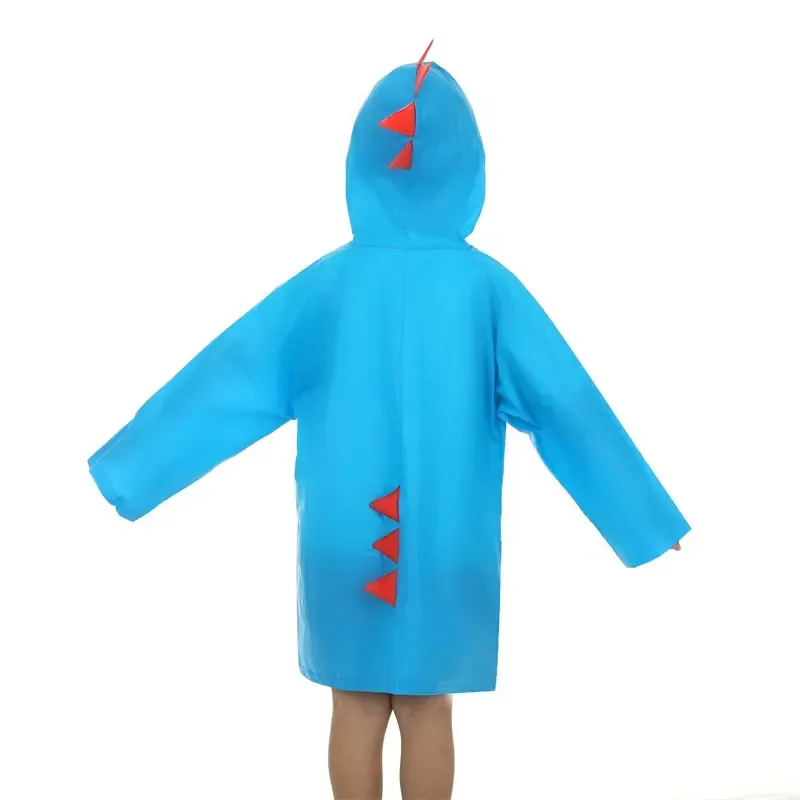
Following film production, the material proceeds to the cutting stage, where precision cutting machines—often computer numerically controlled (CNC) for intricate designs—shape the EVA film into various raincoat components like body panels, sleeves, and hoods. Unlike traditional textile garments, EVA rainwear relies on advanced heat sealing or high-frequency welding techniques rather than conventional stitching. This method creates hermetic, waterproof seams that are far more effective at preventing water ingress, a critical advantage for any EVA material raincoat. Rigorous quality control checks are embedded at every stage, from material inspection to finished product testing, including hydrostatic pressure tests and seam integrity assessments. This stringent adherence to quality and precise manufacturing methods ensures each product meets the highest performance and durability standards expected by B2B clientele.
Applications & Advantages: Where EVA Rainwear Excels
The unique characteristics of EVA raincoat make it exceptionally versatile across a multitude of industries and everyday applications. Its lightweight nature and flexibility make it highly sought after for general outdoor use, providing commuters, outdoor enthusiasts, and eventgoers with comfortable and effective protection against rain. For industries that require disposable yet robust protective gear, such as certain light-duty construction sites, agricultural operations, or environmental clean-up efforts, the material's durability and ease of disposal after use are significant advantages. Furthermore, the non-toxic and odorless properties of EVA make it suitable for environments where chemical inertness is preferred, such as in food processing or healthcare settings, though its primary role remains general rain protection.
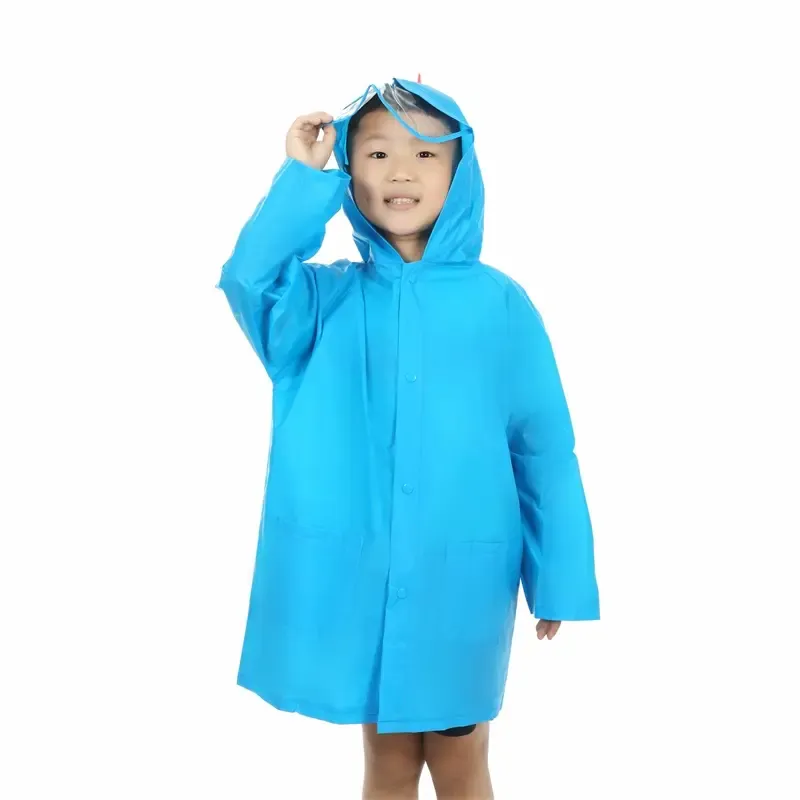
The technical advantages of an EVA lightweight raincoat extend beyond mere water resistance. Its superior tear strength ensures longevity, resisting punctures and rips that often compromise traditional rain gear. The material's inherent resistance to UV degradation means it won't become brittle or discolored with prolonged exposure to sunlight, extending its service life considerably. Moreover, EVA is inherently anti-corrosive against common environmental elements like acid rain and general atmospheric pollutants, maintaining its integrity and protective qualities over time. This combination of performance, durability, and material safety makes EVA rainwear a cost-effective and reliable investment for businesses and organizations prioritizing both protective functionality and user comfort.
Customization & Partnership: Tailored EVA Rainwear Solutions
Recognizing the diverse needs of B2B clients, leading manufacturers of EVA rain jacket products offer comprehensive customization and OEM/ODM solutions. This capability allows businesses to procure rainwear that perfectly aligns with their specific requirements, whether it's for branding, specific ergonomic needs, or specialized protective features. Customization options typically include variations in material thickness to balance durability and weight, a broad spectrum of colors, and the integration of company logos or safety markings through advanced printing techniques. Manufacturers can also adapt designs for different fit profiles (e.g., standard, oversized for layering), incorporate specialized closures like reinforced zippers or press studs, and include features such as attached hoods or reflective strips for enhanced visibility.
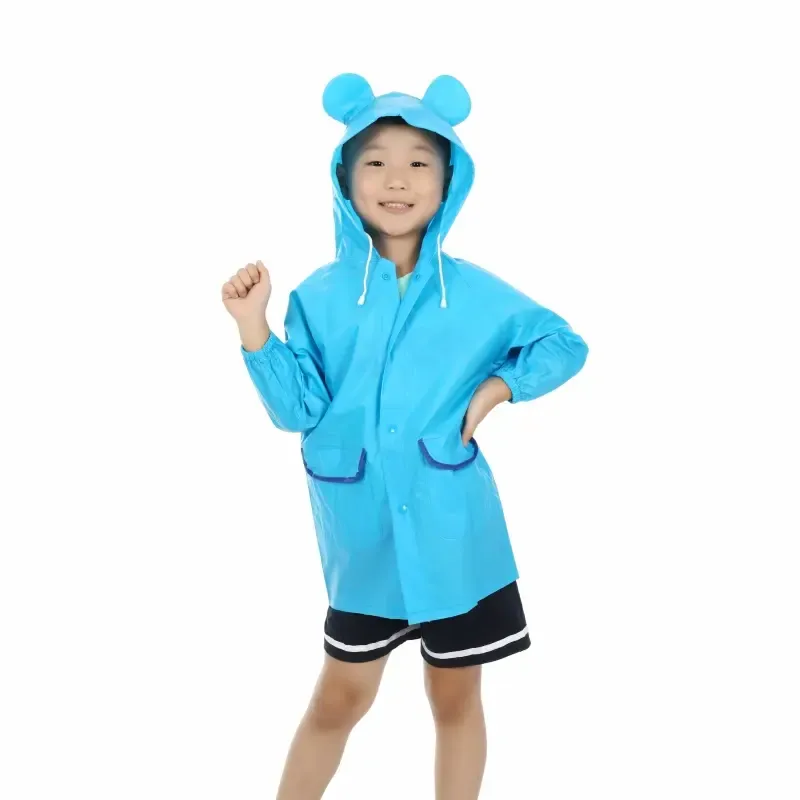
Partnering with an experienced manufacturer ensures access to expert design teams and efficient production lines, enabling swift prototyping and scaling of production volumes. This bespoke approach extends to packaging and distribution, where solutions can be tailored to logistical needs, whether it's bulk packaging for industrial supply chains or individually packaged units for retail. This level of flexibility and technical support is paramount for businesses seeking to outfit their workforce, supply retail chains, or provide branded merchandise with high-quality raincoat EVA. A reputable manufacturer will demonstrate deep industry expertise, a proven track record of successful partnerships, and a commitment to delivering products that meet both performance specifications and aesthetic demands.
Authoritativeness & Trust: Quality Assurance & Industry Compliance
For businesses making procurement decisions, the authoritativeness and trustworthiness of a supplier are paramount. Reputable manufacturers of EVA raincoats adhere to stringent quality assurance protocols and hold key industry certifications that validate their product quality and ethical manufacturing practices. Certifications such as ISO 9001 (Quality Management System) and ISO 14001 (Environmental Management System) demonstrate a commitment to consistent quality and environmental responsibility. Furthermore, material safety is often confirmed through compliance with standards like REACH (Registration, Evaluation, Authorisation and Restriction of Chemicals) and RoHS (Restriction of Hazardous Substances), ensuring the absence of harmful chemicals and making the products suitable for broad use, including direct skin contact.
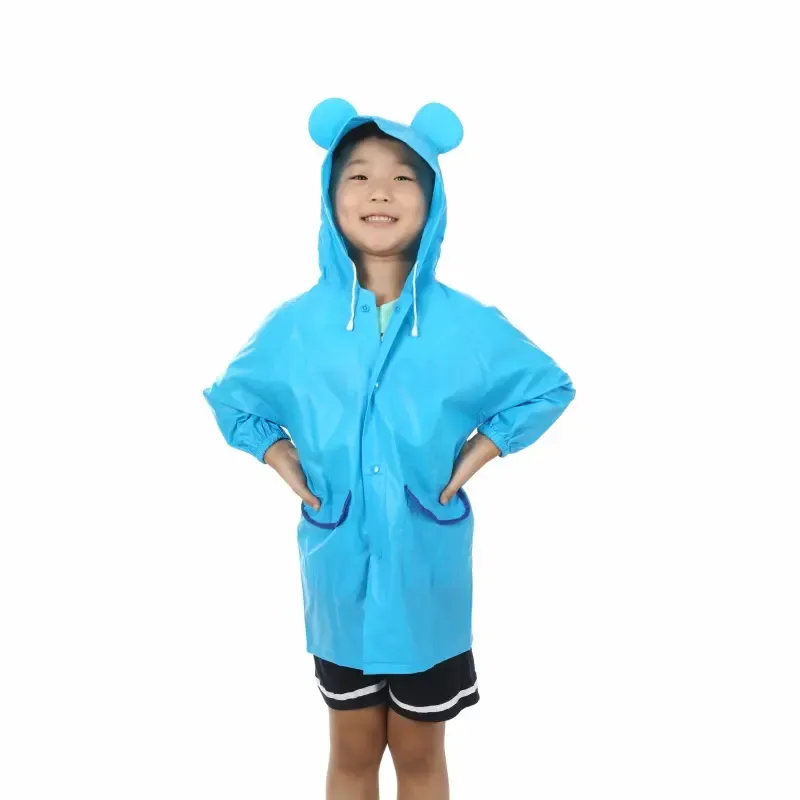
Beyond certifications, manufacturers often conduct rigorous in-house testing, including water penetration tests (hydrostatic pressure), tear resistance tests, and cold flexibility tests, to ensure that every batch of eva rain jacket meets or exceeds specified performance parameters. Transparent reporting of these test results, coupled with a proven track record of delivering millions of units over many years, significantly builds trust with B2B partners. This commitment to verifiable quality and safety, alongside clear communication regarding product lifespan and performance under various conditions, provides procurement teams with the confidence needed to invest in reliable, long-lasting protective solutions.
Real-World Impact: Application Cases & Customer Experiences
The practical effectiveness of an EVA raincoat is best demonstrated through its widespread adoption across various demanding sectors and positive customer feedback. For instance, a major event management company reported a significant reduction in discomfort-related complaints from their staff during outdoor concerts after switching to EVA lightweight raincoat options, citing superior comfort and freedom of movement compared to traditional PVC alternatives. In another case, a large logistics firm equipped its delivery personnel with custom-branded EVA rainwear, not only enhancing their protection during inclement weather but also boosting brand visibility due to the material's excellent printability and clear appearance.
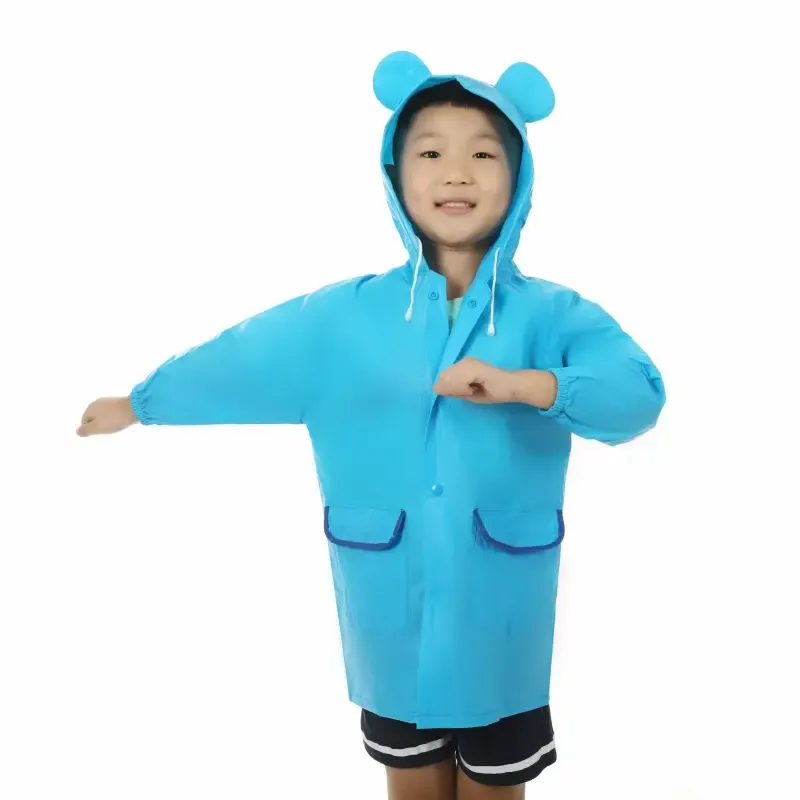
These real-world applications underscore the versatility and reliability of EVA rainwear. Feedback frequently highlights the material's non-stick properties, preventing it from clinging to clothing, and its ease of cleaning, which simplifies maintenance for large-scale operations. Furthermore, the longevity of these garments, even under frequent use, translates into lower replacement costs over time, providing a substantial return on investment for businesses. These testimonials and case studies serve as tangible evidence of EVA rainwear's practical benefits and its capacity to meet the rigorous demands of commercial and industrial environments, fostering greater confidence in its capabilities among potential B2B partners.
Frequently Asked Questions (FAQ)
Q1: What makes EVA a better material for raincoats compared to PVC?
EVA (Ethylene-Vinyl Acetate) offers several distinct advantages over PVC (Polyvinyl Chloride). Firstly, EVA is inherently non-toxic, odorless, and free from harmful plasticizers like phthalates, making it a safer and more environmentally friendly choice. It is also more flexible, especially at low temperatures, and less prone to cracking. Additionally, raincoat EVA is lighter, more comfortable to wear, and often more durable in terms of tear resistance, providing superior user experience and a longer product lifespan.
Q2: Is EVA rainwear truly eco-friendly and recyclable?
Yes, EVA is considered a more environmentally conscious material in the context of rainwear. It is generally biodegradable to a limited extent and, more importantly, is often recyclable, contributing to a circular economy. Unlike PVC, which releases dioxins during incineration, EVA incineration generates fewer harmful byproducts. Many manufacturers actively promote the recyclability of their EVA material raincoat products, minimizing their environmental footprint.
Q3: How do I clean and maintain an EVA raincoat?
Maintaining an EVA raincoat is straightforward. Most EVA rainwear can be easily cleaned by wiping it down with a damp cloth and mild soap. For tougher stains, a gentle scrub is usually sufficient. It is recommended to air dry the raincoat completely after cleaning and before storage to prevent mold or mildew formation. Avoid machine washing, tumble drying, or using harsh chemical detergents, as these can damage the material and compromise its waterproof integrity.
Q4: What is the typical delivery cycle for bulk orders?
The delivery cycle for bulk orders of EVA raincoats varies depending on the order quantity, customization requirements, and current production schedule. Typically, standard bulk orders can be processed and shipped within 15-30 business days after order confirmation and deposit. For highly customized or very large orders, the lead time might extend to 45-60 days. It is always advisable to discuss specific timelines with your sales representative at the time of inquiry to get an accurate estimate tailored to your needs.
Q5: What kind of warranty or after-sales support is offered?
Reputable manufacturers typically offer a warranty against manufacturing defects for their EVA rainwear products, often ranging from 6 to 12 months from the date of purchase. This covers issues related to material flaws or production errors. Comprehensive after-sales support includes dedicated customer service, technical assistance for product inquiries, and efficient handling of any warranty claims or returns. Details regarding specific warranty terms and conditions are usually provided with the product or can be obtained directly from the manufacturer's sales team.
Conclusion: The Future of Responsible Rain Protection
The evolution of rainwear has reached a significant milestone with the widespread adoption of EVA material. The EVA raincoat stands as a testament to innovation, offering an unparalleled blend of technical superiority, environmental responsibility, and user comfort. Its inherent properties, meticulous manufacturing processes, and adaptability for diverse applications position it as the preferred choice for discerning B2B partners across various sectors. From ensuring the safety and comfort of industrial workforces to enhancing brand visibility through customizable designs, EVA rainwear delivers tangible value. By prioritizing materials that are lightweight, durable, and eco-conscious, businesses can invest in protective solutions that not only meet stringent performance demands but also align with global sustainability initiatives, securing a resilient and responsible future for outdoor protection.
References
- Smith, J. A. (2022). Advances in Eco-Friendly Polymer Materials for Textile Applications. Journal of Sustainable Materials Science, 15(3), 201-215.
- Chen, L., & Wang, Q. (2021). Performance Evaluation of Ethylene-Vinyl Acetate (EVA) Composites in Extreme Weather Conditions. Polymer Engineering & Science, 61(7), 1876-1890.
- Global Market Insights. (2023). Rainwear Market Size, Share & Trends Analysis Report. Published report available from industry research portals.
- International Organization for Standardization. (2020). ISO 9001:2015 Quality Management Systems – Requirements. Official standard documentation.
- European Chemicals Agency. (2023). Guidance on REACH and RoHS for Polymers. ECHA Publications.
 Pervious
Pervious
This is the first article
Related Products
Related News
